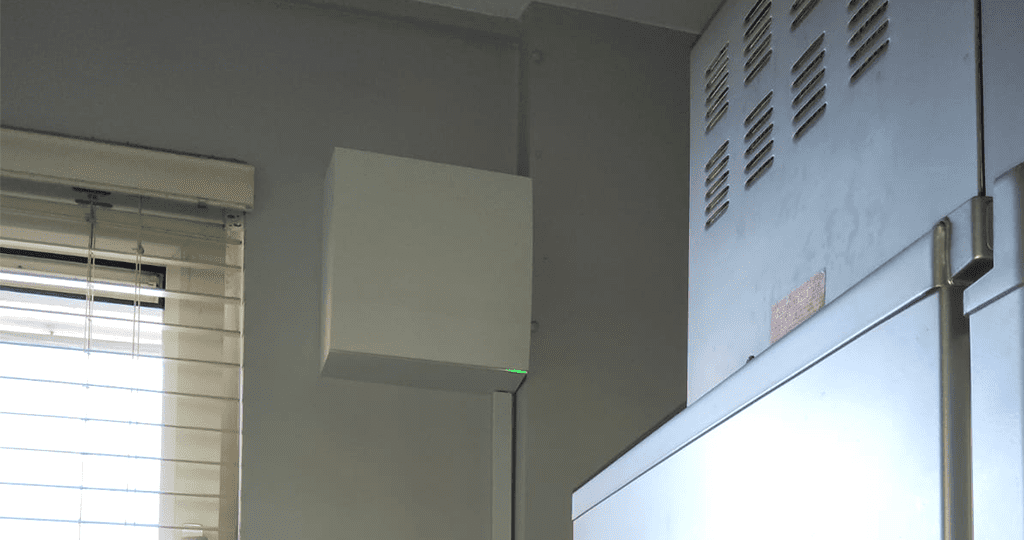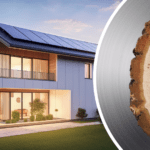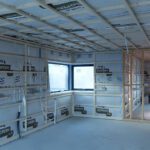Project Overview
Dublin City Council (DCC) undertook a groundbreaking project to enhance the indoor air quality of its social housing properties. This initiative focused on upgrading or installing cutting-edge ventilation systems to address persistent challenges related to poor air quality, condensation, and mold reported by tenants. The project’s objective was to provide residents with improved living conditions and optimal indoor air quality by upgrading or installing ventilation systems in houses and apartments across the council’s properties.
Ventilation Units Used
To address the ventilation needs of DCC housing units, Partel’s decentralized continuous Mechanical Extract Ventilation (d-MEV) system was selected. This system featured the use of Lunos Silvento V-EC FK extract fans and Lunos ALD100 units for passive intake.
The Challange
Lack of Previous Ventilation: Many housing units lacked adequate ventilation or had no previous ventilation systems in place. The challenge was to install efficient ventilation solutions in these properties to ensure healthy indoor air quality.
Tenant Engagement and Access: Obtaining tenant cooperation and access to housing units was crucial for the successful installation of ventilation systems. This required effective communication and coordination with DCC and the tenants.
Addressing Poor Air Quality Issues: The project aimed to resolve issues related to poor air quality, condensation, and mould that had been reported by tenants. This involved not only installing new systems but also addressing the removal of inadequate existing ventilation solutions.
The Solution
The project team implemented a systematic approach to address these challenges:
Tenant Engagement and Access: Contacting tenants and requesting access to their housing units was a fundamental step. Effective communication was established to explain the purpose and benefits of the ventilation upgrade.
Installation of d-MEV Systems: Silvento V-EC FK extract fans were installed, with a focus on minimizing disruption to tenants. This included coring external walls when necessary to facilitate the installation of Silvento extracts and ALD100 units. Existing inadequate ventilation systems, such as intermittent extracts and hit-and-miss vents, were removed.
Utilization of Existing Ventilation Cores: Existing ventilation cores were evaluated for suitability and, if deemed fit for purpose, were utilized to reduce disruption to tenants. This approach ensured an efficient use of resources.
Benefits
The adoption of Partel’s decentralized Mechanical Extract Ventilation (d-MEV) system brought several benefits to the Dublin City Council social housing project:
Ease of Installation: Ventilation units were installed on external walls, minimizing the need for extensive ducting within the buildings. This reduced disruption to tenants during installation.
Ease of Maintenance: All units featured easily accessible washable filters on the room side, allowing straightforward maintenance. This design facilitated a continuous healthy airflow.
Automatic Boosting: Silvento FK units were equipped with control boards that allowed for automatic boosting of the extract fan based on real-time air quality data. This eliminated the need for user input and improved indoor air quality.
Technical data
Background ventilation was set at 20m³/hr per Silvento unit in “Wet rooms,” with automatic boosting to 60m³/hr upon detecting high humidity or Volatile Organic Compounds (VOCs).
Extracted air was supplemented by the always-open ALD100 passive units in “habitable rooms,” ensuring a continuous flow of fresh, filtered air.
The Dublin City Council Social Housing Advanced Ventilation Upgrade Project focused on the meticulous installation of advanced ventilation systems, incorporating Partel’s innovative technology. Here’s an in-depth exploration of the key components and technical aspects of the installed systems:
1. Silvento V-EC FK Extract Fans:
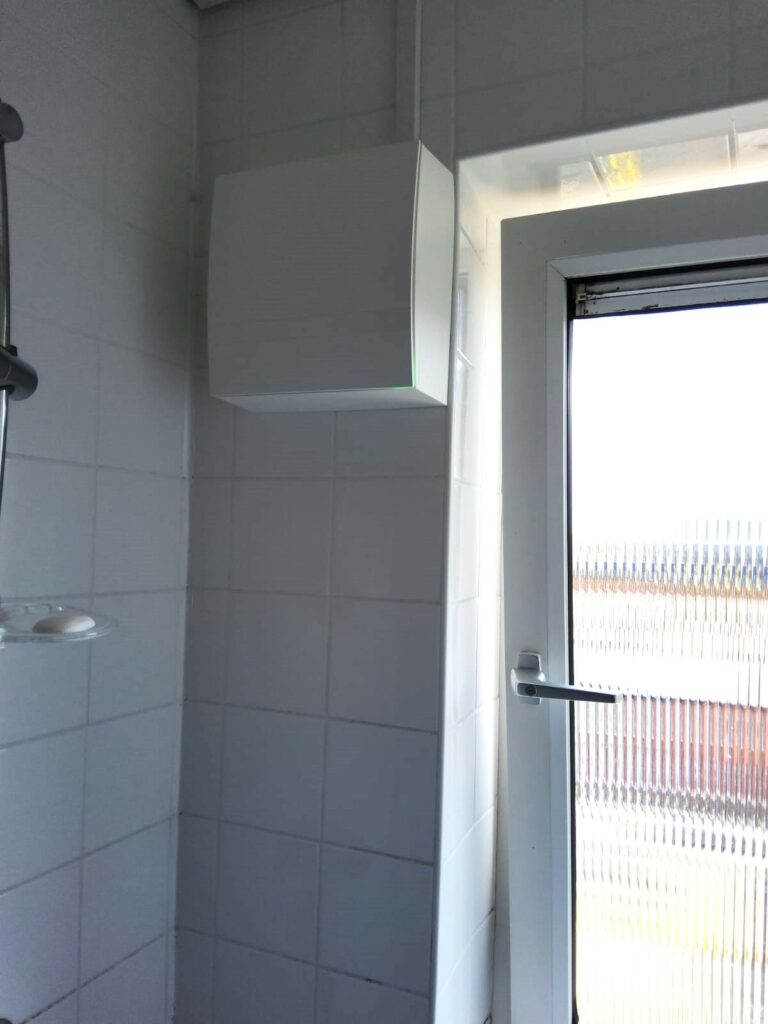
Purpose: Silvento V-EC FK extract fans were strategically placed to serve as the primary extraction source for the ventilation system. These fans are critical for maintaining indoor air quality by expelling stale or polluted air from the housing units.
EC Motors: Silvento V-EC FK fans are equipped with highly efficient EC (Electronically Commutated) motors. EC motors are renowned for their energy efficiency, long lifespan, and precise speed control. This contributes to energy savings and system durability.
Continuous Operation: These fans are designed to operate continuously at a specified background ventilation rate, ensuring a consistent flow of fresh air. This rate is set at 20m³/hr per Silvento unit in “Wet rooms.”
Automatic Boosting: A standout feature of the Silvento V-EC FK fans is their capability for automatic boosting. This functionality is facilitated by advanced control boards. When poor air quality is detected—such as high humidity levels or the presence of Volatile Organic Compounds (VOCs)—the fans seamlessly boost the extraction rate to 60m³/hr. This dynamic adjustment eliminates the need for manual user input, enhancing indoor air quality without occupant intervention.
Ease of Maintenance: All Silvento units are designed with easily accessible washable filters on the room side of the units. This user-friendly design simplifies maintenance procedures, enabling residents or maintenance personnel to ensure a continuous flow of fresh, healthy air with minimal effort.
2. ALD100 Passive Intake Units:
Purpose: In conjunction with the Silvento extract fans, ALD100 passive intake units play a pivotal role in the ventilation system. These units are positioned in “habitable rooms” to ensure a constant supply of fresh, filtered outdoor air, contributing to balanced ventilation and optimal indoor air quality.
Continuous Fresh Air Supply: ALD100 units are designed to be always open, providing a consistent and passive intake of fresh air into the housing units. This design ensures a continuous flow of fresh, filtered air without relying on occupant interaction.
Sound Protection: ALD100 units are engineered with sound protection features. These design elements minimize noise from external sources and reduce drafts, enhancing occupant comfort while maintaining a comfortable passive intake of outdoor air.
Energy Efficiency: The passive nature of the ALD100 units contributes to energy efficiency, as they do not require mechanical components to operate. This aligns with sustainability goals and minimizes energy consumption.
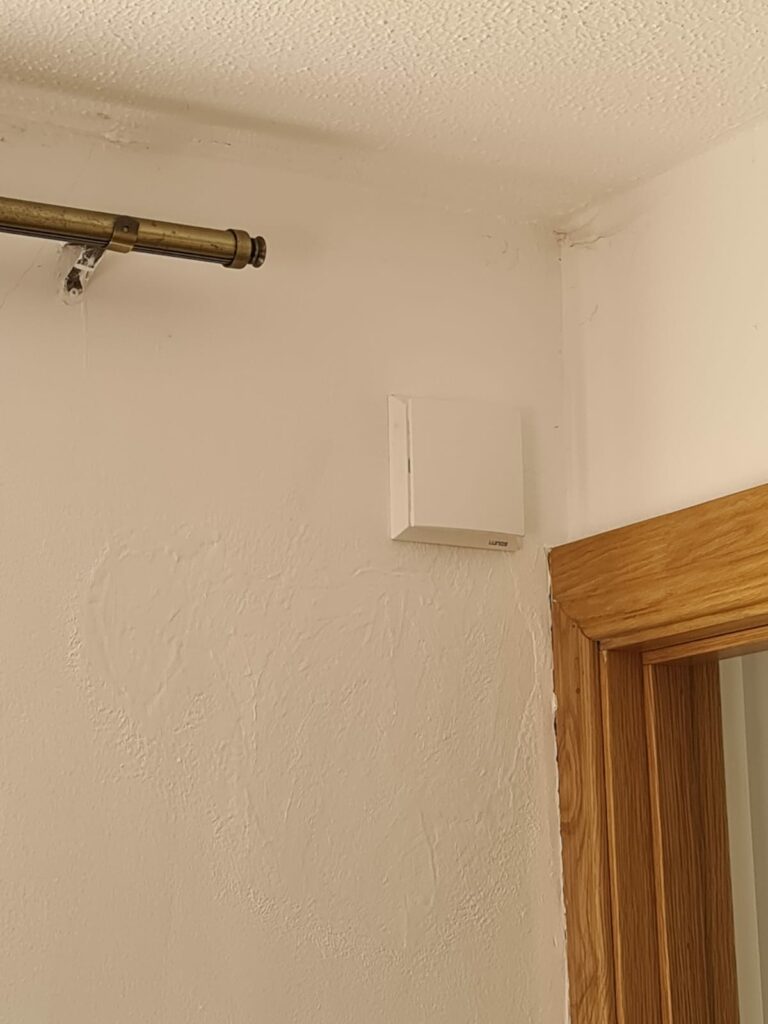
Technical Data and Control
Background Ventilation Rates: The background ventilation rate for Silvento V-EC FK extract fans is set at 20m³/hr per unit in “Wet rooms.” This rate ensures a continuous, baseline level of ventilation to maintain indoor air quality.
Automatic Boosting: Silvento fans automatically boost to 60m³/hr when triggered by the system’s on-board sensors. These sensors continuously monitor air quality parameters, including humidity and VOC levels. Boosting occurs in response to deteriorating air quality, and it continues until the system’s control is satisfied that air quality has returned to acceptable levels.
The ALD100 passive units, placed in “habitable rooms,” perpetually ensured a consistent flow of fresh, filtered air, guaranteeing optimal indoor air quality.
Technical Expertise and Commissioning:
Partel’s technical services encompassed the precise installation of the decentralised Mechanical Extract Ventilation (d-MEV) ensuring that each component operated optimally. Additionally, during the commissioning phase, the functionality of the systems was rigorously verified. This included confirming that specified flow rates were achieved and that the systems delivered optimal performance.
In conclusion, the Dublin City Council Social Housing Advanced Ventilation Upgrade Project leveraged Silvento V-EC FK extract fans and ALD100 passive intake units to create a sophisticated ventilation system that significantly improved indoor air quality and living conditions. These technical components, coupled with advanced control features and ease of maintenance, exemplify the project’s commitment to delivering high-performance, energy-efficient, and user-friendly ventilation solutions for residents.
Partel Services Provided
Installation of the d-MEV systems to ensure efficient and effective ventilation in housing units.
Commissioning of the systems to verify their correct operation and adherence to specified flow rates.
The Dublin City Council Social Housing Ventilation Upgrade Project serves as a successful example of how the adoption of decentralised Mechanical Extract Ventilation (d-MEV) systems can significantly improve indoor air quality and living conditions for residents while minimizing disruption during installation. The project’s benefits include ease of maintenance, automatic ventilation control, and efficient use of existing ventilation cores. The project’s merits encompass effortless maintenance, automatic ventilation control, and the efficient utilization of pre-existing ventilation cores.

